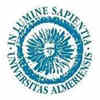美国明尼苏达大学神经科学系招收博士后
美国明尼苏达大学神经科学系招收博士后
A funded postdoctoral position with an emphasis on studying the synaptic mechanisms of cognitive motor learning is available immediately in the laboratory of Dr. Aaron Kerlin (www.kerlinlab.org). Successful applicants will use state-of-the-art equipment we have constructed for the in vivo measurement and manipulation of synaptic function, including novel multiphoton imaging, optogenetic, and computational tools.
We are looking for a highly motivated individual with a strong background in cellular/systems neuroscience, but also welcome applicants with strong quantitative skills from related fields (e.g., biology, biophysics, biomedical engineering). A very competitive salary as well as substantial material and personnel support will be provided to the postdoctoral fellow leading this project. This is a unique opportunity to study the signals that generate learning and potentially bridge a longstanding gap between how artificial and real networks learn.
The Department of Neuroscience at the University of Minnesota is home to a strong and collaborative community studying motor learning and motivational control. Our laboratory is also part of the Optical Imaging and Brain Sciences, Medical Discovery Team initiative, providing us with access to substantial internally-funded resources for optical engineering and computation. We are based in the vibrant and multicultural city of Minneapolis, with over 200 medical institutions, 550 square kilometers of lakes and parks, two internationally acclaimed orchestras, a robust local music scene, and almost as many theater seats as New York City.
Interested candidates should send a brief description of their research interests, curriculum vitae, and the names and contact information of two references to akerlin@umn.edu. Official applications should be submitted online: https://humanresources.umn.edu/content/find-job Job ID: 336082 (Post-Doctoral Associate – Neuroscience)
Applicants must hold a doctoral degree in neuroscience, biology, physics, biomedical engineering or related field.

















